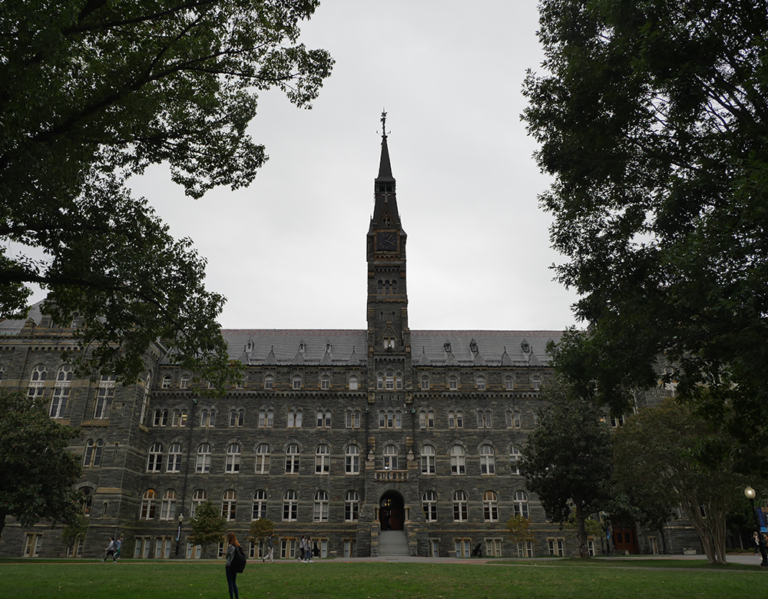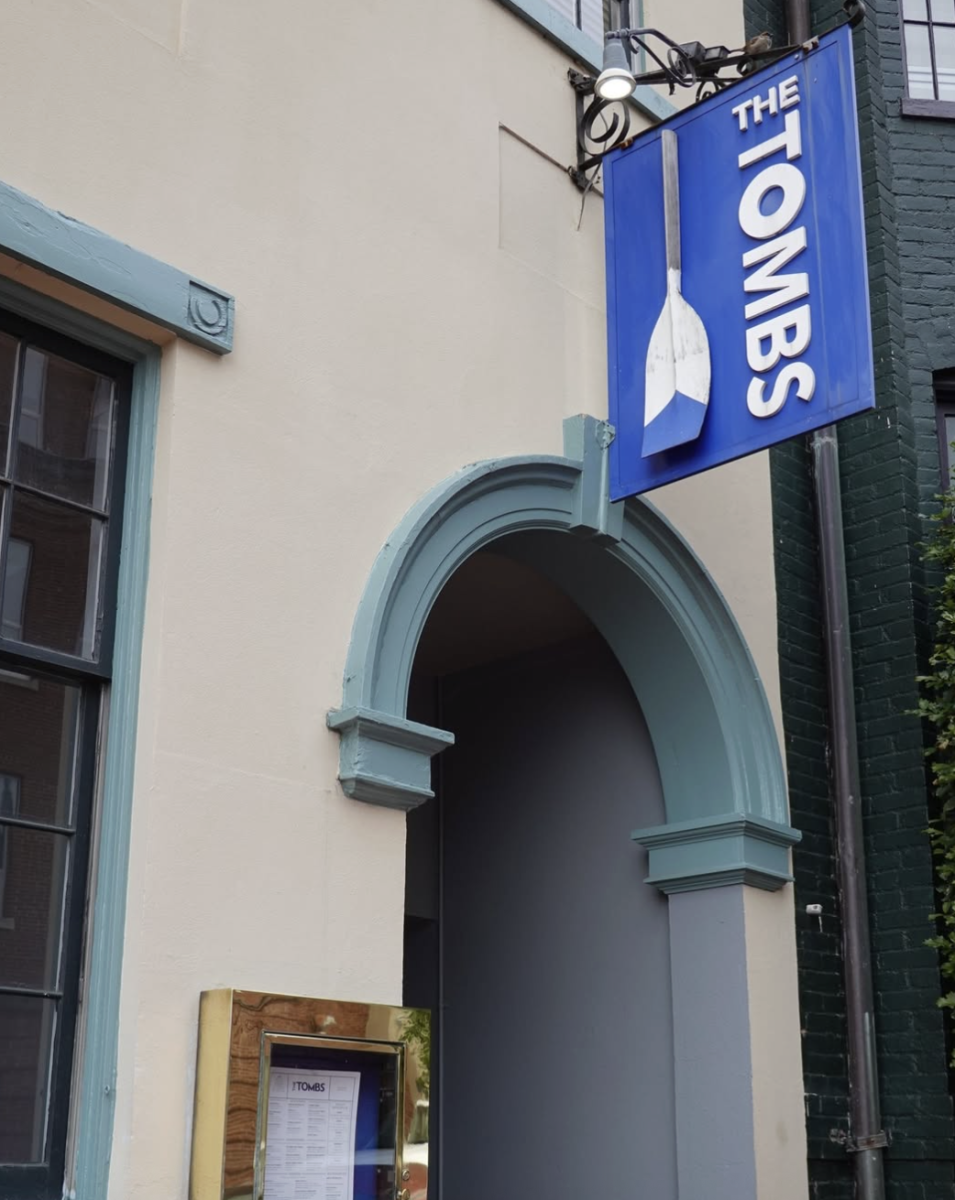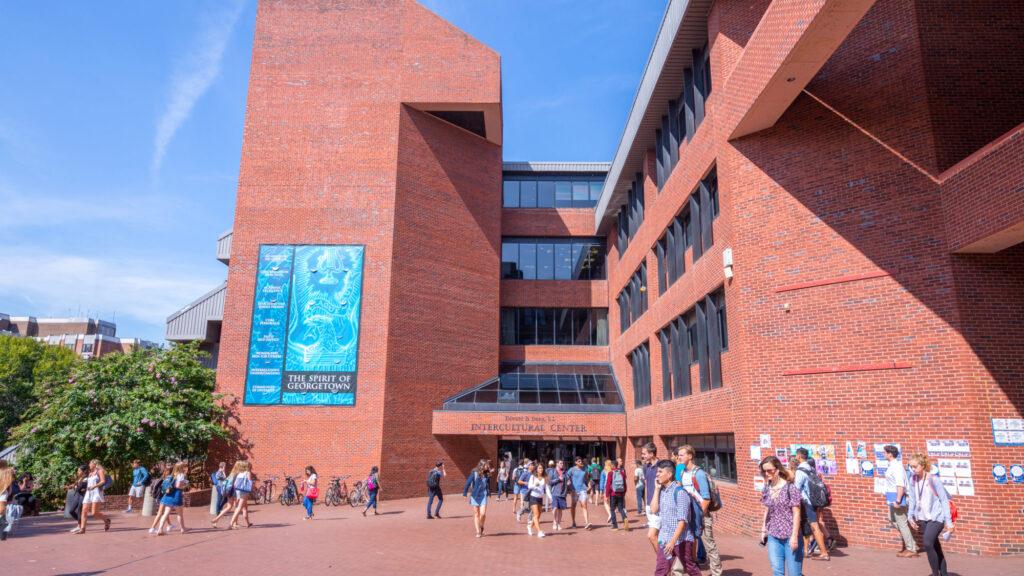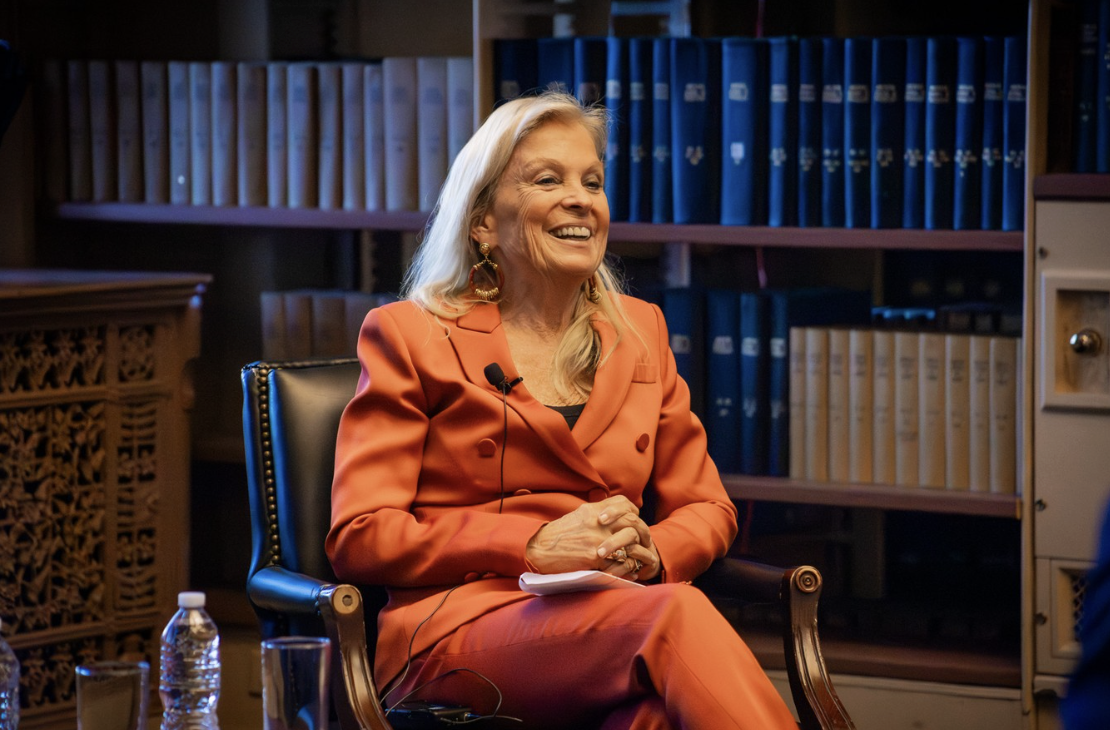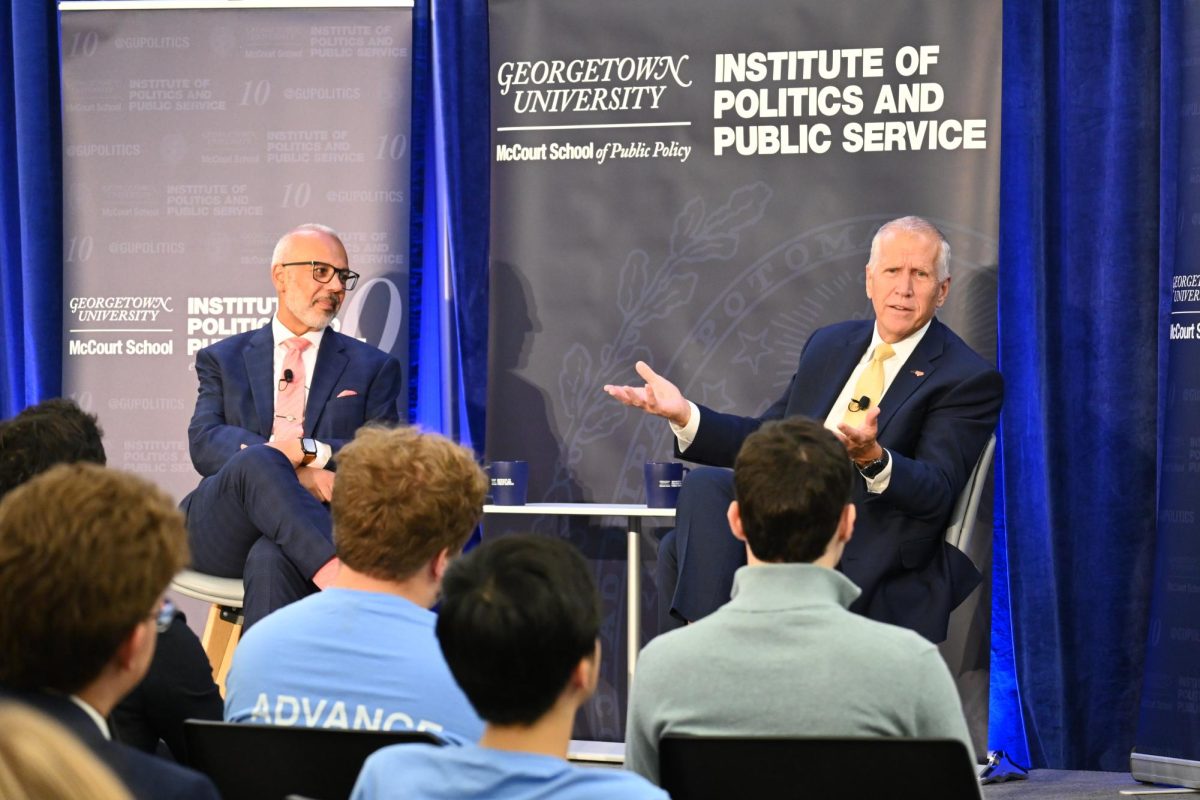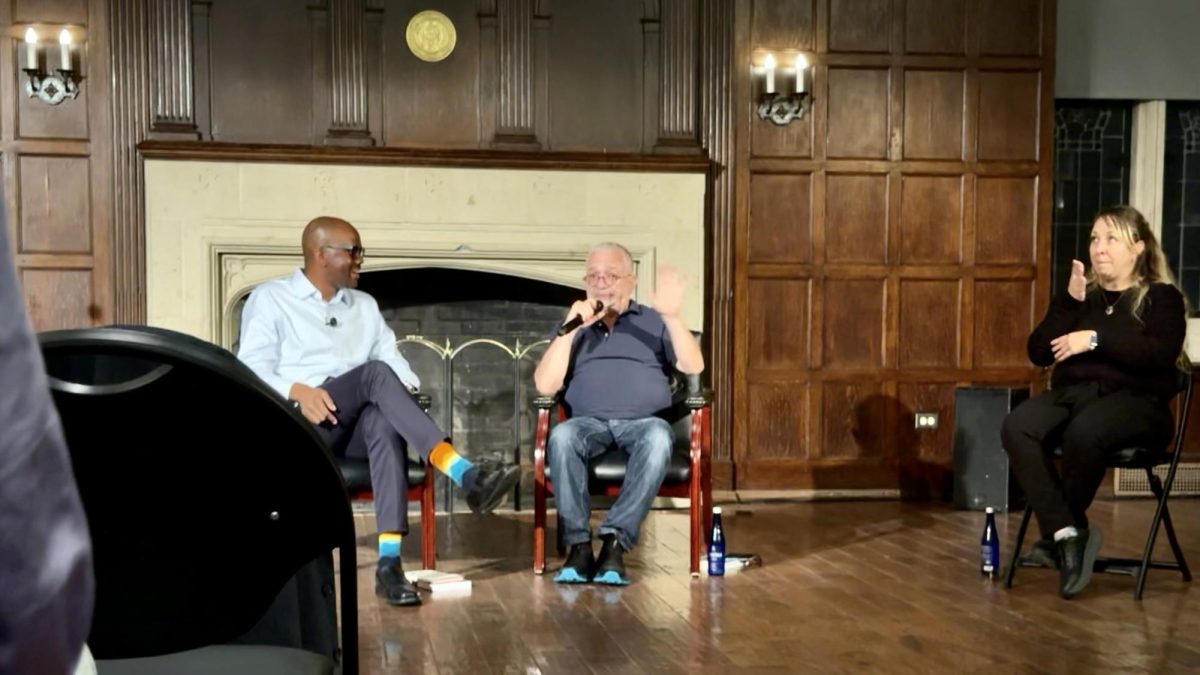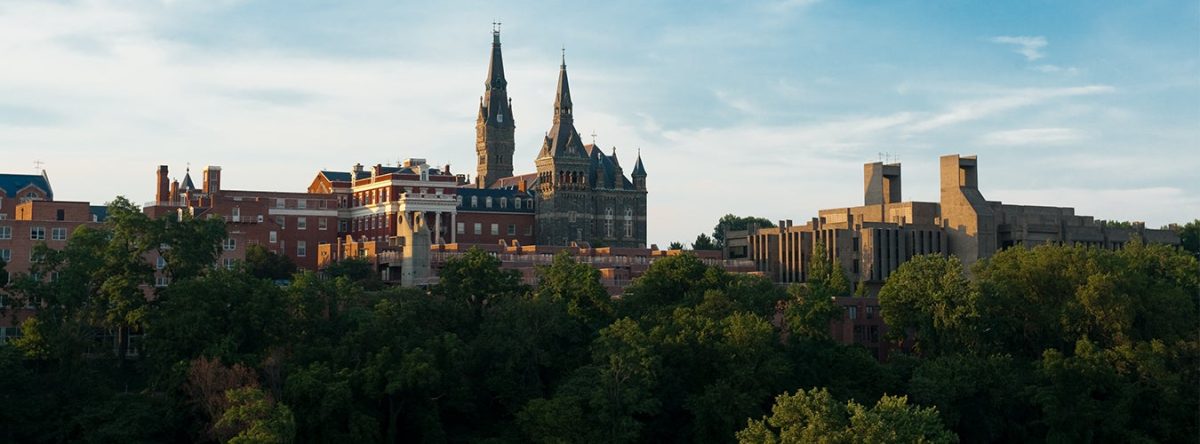Georgetown University’s Global Irish Studies (GIS) initiative and the BMW Center for German and European Studies hosted Irish Taoiseach, or prime minister, Simon Harris to commemorate the origin of diplomatic relations between the United States and Ireland and to discuss global humanitarian crises Oct. 10.
The conversation celebrated the centennial anniversary of the United States becoming the first nation to formally recognize free Ireland in a diplomatic relationship on Oct. 7, 1924. Professor Cóilín Parsons, GIS director, moderated the conversation, which was attended by students and faculty from Georgetown and other local universities as well as journalists. At the end of the discussion, students had the opportunity to ask Harris questions on topics ranging from trade with China to educational exchanges between the United States and Ireland.
Madison Dwyer (SFS ’25), one of the Global Irish Studies fellows, a program which researches Irish relations, said that the GIS program informed her about the event and the uniqueness of the opportunity inspired her to attend.
“I was invited to attend by our program director, Professor Parsons, but also like, are you kidding me? I’m never going to turn down the opportunity,” Dwyer told The Hoya.
During his conversation with Parsons, Harris said that U.S. recognition of Ireland a century ago set the groundwork for a relationship that emphasizes democracy and peace.
“It’s quite incredible when you say that the first country in the entire world to recognize Ireland was the United States of America,” Harris said at the event. “And of course, this was more than just a simple gesture by the United States. It was a declaration of Ireland’s existence on the world stage. And since then, over the past 100 years, our relationship has been grounded in mutual respect, in shared values and in an unyielding commitment to democracy, to peace and to prosperity.
“We see this centenary moment as an opportunity to reflect on the ties that bind our two countries, our parallel histories over time, and it also offers us an opportunity to look forward,” Harris added.
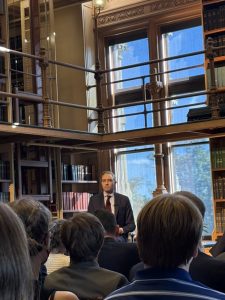
Maria Quinn (SFS ’25), who attended the event with her “Conflict in Northern Ireland” class taught by Darragh Gannon, said that Harris’s point about the significance of U.S. recognition of Ireland 100 years ago resonated with her because of Ireland’s recognition of Palestine earlier this year.
“I was struck by Harris’s remarks on the importance of recognition,” Quinn wrote to The Hoya. “He talked about the historical weight of the United States being the first country to recognize the Irish Free State in 1924 and the ripple effects of that recognition throughout the world. Harris tied this theme back to the Palestinian plight and Ireland’s recognition of the Palestinian state, which is both a powerful symbolic and political step.”
Caleigh Peloso (CAS ’25), another student in Gannon’s class, said that Gannon’s passion and connection to U.S. and Irish politics reminded her of the importance of the opportunities at Georgetown to hear from diplomatic leaders firsthand.
“I think for this opportunity in particular, it was really important for us to share the same enthusiasm and participate in the conversation and kind of take it outside the classroom and engage with the history and the politics in real time and in real life,” Peloso told The Hoya. “So I thought that was really cool. And we’re lucky to go to a school where politicians visit and want to talk to Georgetown students.”
Harris said that Ireland’s role regarding global conflicts is to emphasize the country’s values, including human rights and democracy.
“Our foreign policy has always been guided by a simple principle that we as a nation have a duty to stand up for what is right,” Harris said at the event. “We’re a small country, so we know that our only power comes from respecting our principles and being true to our values. Our words and our reputation bear that out.”
“Our vision is a world where peace triumphs over conflict, where human rights are not seen as some sort of remote privilege but a birthright, and where every nation, no matter how small, has a role to play in protecting human rights and democratic values,” Harris said.



